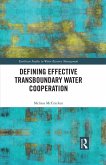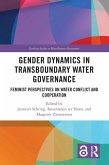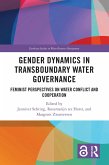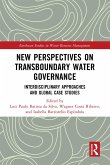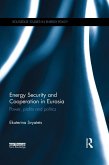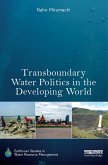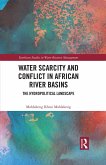Dieser Download kann aus rechtlichen Gründen nur mit Rechnungsadresse in A, B, BG, CY, CZ, D, DK, EW, E, FIN, F, GR, HR, H, IRL, I, LT, L, LR, M, NL, PL, P, R, S, SLO, SK ausgeliefert werden.
Hinweis: Dieser Artikel kann nur an eine deutsche Lieferadresse ausgeliefert werden.
Aaron T. Wolf, Professor of Geography, Oregon State University, USA.
"This book takes the next step in measuring the effectiveness of cooperation over shared water resources. By providing an approach to defining what effective cooperation actually is and to measuring where and how cooperation takes place at what level of effectiveness, it provides great guidance to both researchers and practitioners in ensuring that our shared water resources are being managed equitably and sustainably today and in an increasingly challenging future!"
Susanne Schmeier, Associate Professor in Water Law and Diplomacy, IHE-Delft, Netherlands.
"For those who think about and act to improve transboundary water conflicts, 'cooperation' is a most used and abused term. Through her scrutiny of the term, McCracken helps all of us to realise that water 'cooperation' between states can be as instrumental and destructive as it may be positive. Thanks to this book, we can now use the term 'cooperation' accurately, and perhaps move some water arrangements to be more equitable, more sustainable."
Mark Zeitoun, Professor of Water Security and Policy, University of East Anglia, UK.



